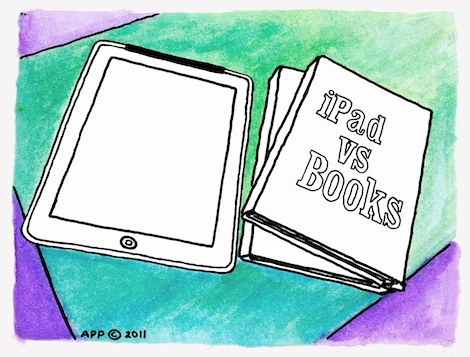by Marjohara Tucay
The discussion on copyright, I believe, not only stems from the encroachment of our ability to create and use past works for such. The issue on copyright is a systemic dilemma, a chronic crisis brought about by the reigning capitalist order.
As capitalist continue to devise means to earn more profit by making products out of everything and promoting a consumerist culture that lavishes on the concept of "private property," the concept of the "communal" has continually been effaced. Our consumerist selves revel on ownership and has forgotten how in the beginning there is no "private" to speak of, as everyone owns everything.
Along with the encroachment of capitalism and the hegemony of consumerist culture, the concept of "intellectual property" -- the ownership of ideas has also taken hold. And yes, copyright laws stem from that idea.
We must remember, that copyright laws, as being essentially a product of global capitalism, will inevitably suffer the crisis of this system -- the downward spiral of profit-earning -- monopoly. In the very near future, not only would capital be in the hands of those in the highest echelons of society, but so will ideas, so will creative output. In time, the global market will devise wilier ways to prohibit us to even create, as they would claim ownership on everything.
Thus we should struggle for a free culture -- a climate of sharing under the ideology that no one owns anything as everyone owns everything. There should be no restrictions in the use of past works. Build upon them! Be inspired by them! This, I believe, would usher in a new Renaissance Age, one where everyone will be empowered to create and to share.
If we opt for a free culture, we are hurtling ourselves onto a great wall that is global capitalism. But through our collective efforts, we can make this happen.
(The music bed is a combination of the songs "On the Floor" by Jennifer Lopez; "Stereo Love" by Edward Maya; "Love Generation" by Bob Sinclair; and "What I Am" by Will.I.Am. Inspired by the book "Free Culture" by Lawrence Lessig and "Postmodernism: The Cultural Critique of Late Capitalism by Fredric Jameson.)
All videos used in this work were taken from YouTube and is viewable in the following links:
http://www.youtube.com/watch?v=RWxqSEMXWuw&feature=related
http://www.youtube.com/watch?v=F5ShMZ0Xy2Q
http://www.youtube.com/watch?v=t4H_Zoh7G5A
http://www.youtube.com/watch?v=v0NSeysrDYw
http://www.youtube.com/watch?v=cyVzjoj96vs
http://www.youtube.com/watch?v=58dYsywoQzE
http://www.youtube.com/watch?v=qOP2V_np2c0
http://www.youtube.com/watch?v=F5ShMZ0Xy2Q
http://www.youtube.com/watch?v=t4H_Zoh7G5A
http://www.youtube.com/watch?v=v0NSeysrDYw
http://www.youtube.com/watch?v=cyVzjoj96vs
http://www.youtube.com/watch?v=58dYsywoQzE
http://www.youtube.com/watch?v=qOP2V_np2c0





